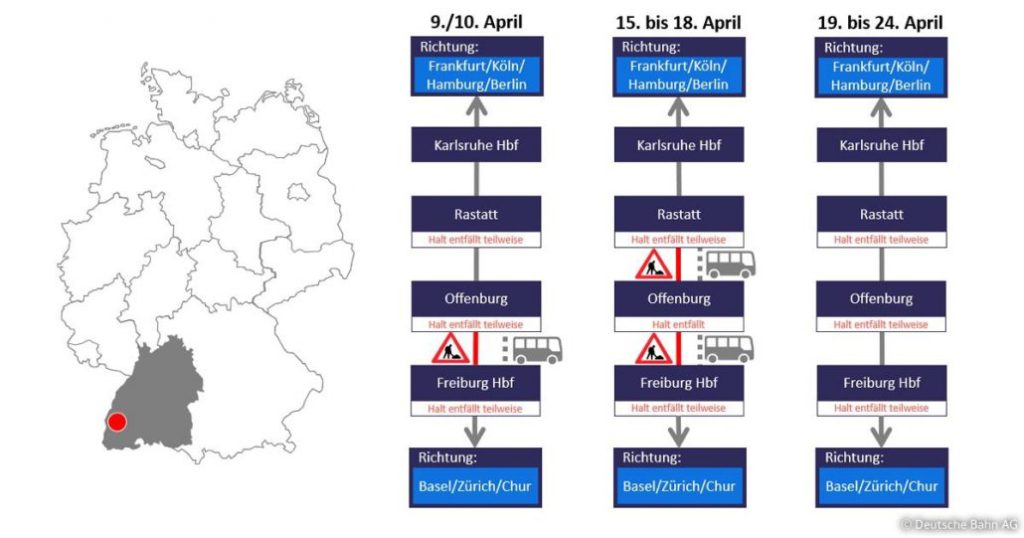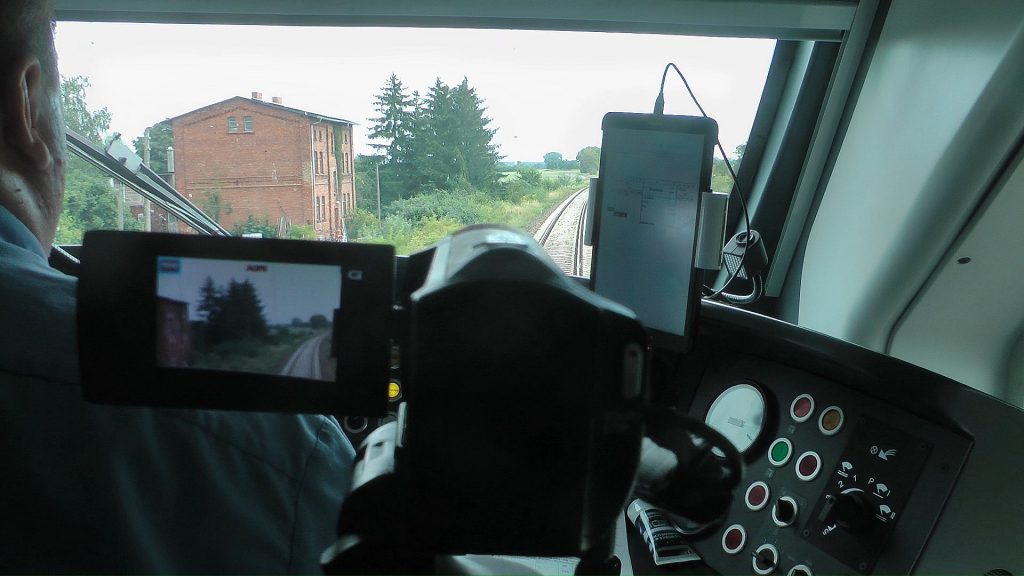“Construction sites on the network are necessary – no question. But the #DBNetz must ensure that traffic can continue despite construction sites and must not act as a hindrance. No construction work on main and alternative routes at the same time.” This is how the network of European railways NEE commented on the latest slowdown in rail freight traffic on the Rhine corridor.
The handicap will be significant. The Handelsblatt reported on April 7th: “1,000 DB Cargo trains alone are affected, a good quarter have to take long detours, either via France or Austria, 280 have already been canceled as a precaution. “Nothing must happen on the diversion routes, otherwise we’ll have a real problem,” said DB Cargo.
“As a result of the bundling of several construction measures, the route between Karlsruhe and Basel will be closed,” says Deutsche Bahn’s construction site information website. The route between Rastatt and Freiburg will be closed from April 15th to 19th due to tunnel work and work on railway crossings. On April 19th to 24th there will be a closure between Karlsruhe and Basel due to track renewal.
“Restricted capacities due to construction work, resource problems, disruptions: difficult conditions on corridors and diversions in 2022.” This is how DB Cargo AG put it in a customer presentation, according to the Handelsblatt. The newspaper therefore warns that the network is in danger of “collapsing”.
NEE says: “While federal investment funds for the infrastructure are still not being fully utilized, DB is celebrating increased investments, but the usable network length was increased by only two kilometers (in percent 0.006) in 2020 and the number of for efficient operation required points was again reduced by 178. DB Netz is apparently not in a position to effectively remedy the glaring lack of capacity on the rails.”
The DB also says: “The railway network is one of the most frequented and modern in Europe. For this reason, and above all to ensure that it stays that way, appropriate modernization work is of course always necessary – including in 2022.” Among other things, the “Mannheim-Karlsruhe railway project” is intended to bring about a long-term improvement in the traffic situation on the north-south corridor. The DB names the following goals:
- close the capacity gap between the adjacent new construction and expansion projects north of Mannheim and south of Karlsruhe,
- contribute to upgrading the rail corridors in the trans-European transport network “Rhine-Alps” and “Rhine-Danube”.
- Strengthen long-distance traffic by better segregating fast and slower traffic • Promote sustainable movement of goods from Rotterdam to Genoa
- Create opportunities to expand the range of regional passenger transport • Shift road traffic to the more environmentally friendly rail: CO2 savings and lower emissions of pollutants
- Strengthen the competitiveness of the regions by linking and expanding two strong economic areas in Baden-Württemberg.
Hermann Schmidtendorf, Editor-in-Chief /d/h/n









